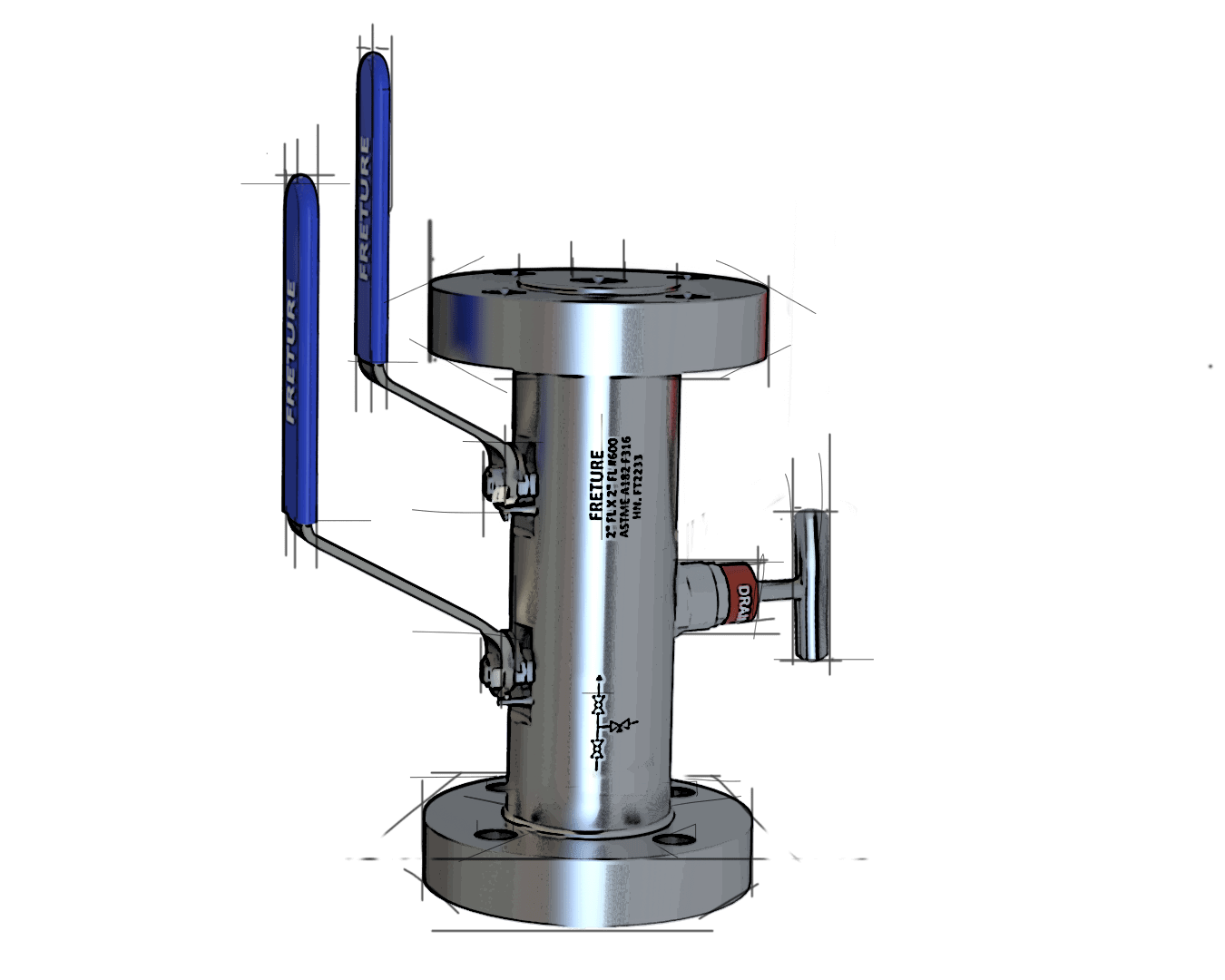Double Block & Bleed (DBB) valves are specialized isolation valves combining two seating elements and an intermediate bleed port in a single body. By providing positive isolation and safe venting of trapped media, Double Block and Bleed Valves protect personnel, equipment, and the environment in demanding applications.
What Are Double Block & Bleed (DBB) Valves?
A DBB valve integrates two independent shut-off elements—typically balls or plugs—plus a bleed (vent) port located between them. When both isolation elements are closed, the cavity between them can be safely depressurized or sampled via the bleed. Variants include:
-
Integral DBB: all components in one body for minimal footprint
-
Tandem DBB: two separate valves with a shared bleed line
-
Dual-ball DBB: two balls in series for high-integrity shutoff
This design eliminates the need for multiple separate valves and piping, reducing leak paths and simplifying maintenance.
Key Industries & Applications
Oil & Gas Upstream
In wellheads and flow-control skids, DBB valves isolate tubing and casing for wireline operations. Before servicing, operators close both isolation elements and vent the intermediate cavity to ensure no hydrocarbons can escape.
Refining & Petrochemicals
DBB valves on high-pressure reactors and catalyst-loading lines enable safe loading and unloading without depressurizing the entire system. For instance, in hydrocracker feed manifolds, the bleed port verifies seal integrity before removing reactor heads.
LNG & Cryogenic Plants
Cold-box maintenance requires isolation of cryogenic lines carrying liquefied gases. DBB valves with cryo-rated seats and low-temperature alloys prevent inadvertent boil-off releases during purge and service operations.
Power Generation
Steam-turbine bypass and maintenance lines deploy DBB valves to isolate high-pressure steam. Operators use the bleed to verify upstream isolation before opening adjacent equipment, reducing the risk of unexpected live-steam exposure.
Chemical & Pharmaceutical
In processes handling toxic or ultra-pure fluids—such as anhydrous ammonia or API-grade solvents—DBB valves ensure zero cross-contamination. The ability to vent or sample between seats supports quality control and fugitive emissions compliance.
How DBB Valves Enhance Safety & Efficiency
-
Positive Isolation: Two independent seats provide double assurance against fluid passage, critical during maintenance or instrument calibration.
-
Built-in Bleed Port: Allows safe depressurization, sampling, or purging of trapped media, verifying seat integrity before work begins.
-
Fugitive Emission Control: With bellows-sealed stems and compliance to EPA and ISO 15848 standards, DBB valves minimize leaks of toxic or greenhouse gases.
-
Reduced Downtime: Simplified isolation and venting accelerate turnaround schedules, avoiding full-system depressurization and its associated hazards.
Selection & Best Practices
-
Material Choices: Stainless steel (SS 316/316L) for general service; duplex or Monel® for chloride-rich or sour environments.
-
Pressure/Temperature Ratings: Select valves certified to API 6D (pipeline service) and NACE MR0175 for H₂S resistance; verify seat materials for operating temperatures.
-
Installation Tips:
-
Position bleed piping to safe collection points
-
Include test ports for cavity pressure checks
-
Ensure adequate space for full stroke and maintenance
-
Conclusion & Call to Action
By combining dual isolation elements with a venting function, double block and bleed valves deliver unparalleled safety, integrity, and operational efficiency. Whether in oil & gas, petrochemicals, power, or pharmaceuticals, DBB valves are indispensable process safety valves for critical isolation.
Contact our experts today to discuss engineered DBB solutions tailored to your industry’s toughest challenges



